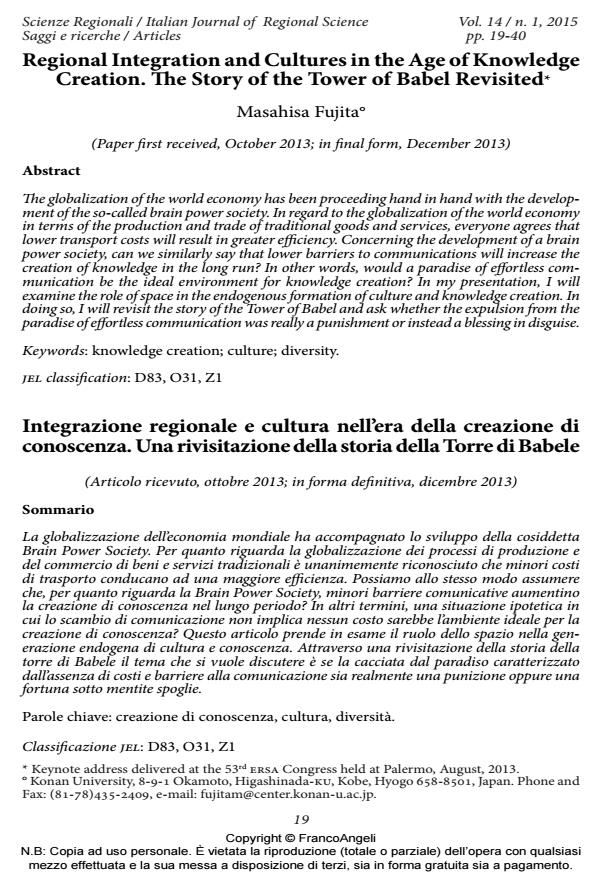Regional Integration and Cultures in the Age of Knowledge Creation. The Story of the Tower of Babel Revisited
Journal title SCIENZE REGIONALI
Author/s Masahisa Fujita
Publishing Year 2015 Issue 2015/1
Language English Pages 22 P. 19-40 File size 321 KB
DOI 10.3280/SCRE2015-001002
DOI is like a bar code for intellectual property: to have more infomation
click here
Below, you can see the article first page
If you want to buy this article in PDF format, you can do it, following the instructions to buy download credits

FrancoAngeli is member of Publishers International Linking Association, Inc (PILA), a not-for-profit association which run the CrossRef service enabling links to and from online scholarly content.
The globalization of the world economy has been proceeding hand in hand with the development of the so-called brain power society. In regard to the globalization of the world economy in terms of the production and trade of traditional goods and services, everyone agrees that lower transport costs will result in greater efficiency. Concerning the development of a brain power society, can we similarly say that lower barriers to communications will increase the creation of knowledge in the long run? In other words, would a paradise of effortless communication be the ideal environment for knowledge creation? In my presentation, I will examine the role of space in the endogenous formation of culture and knowledge creation. In doing so, I will revisit the story of the Tower of Babel and ask whether the expulsion from the paradise of effortless communication was really a punishment or instead a blessing in disguise.
Keywords: knowledge creation; culture; diversity.
Jel codes: D83, O31, Z1
Masahisa Fujita, Regional Integration and Cultures in the Age of Knowledge Creation. The Story of the Tower of Babel Revisited in "SCIENZE REGIONALI " 1/2015, pp 19-40, DOI: 10.3280/SCRE2015-001002